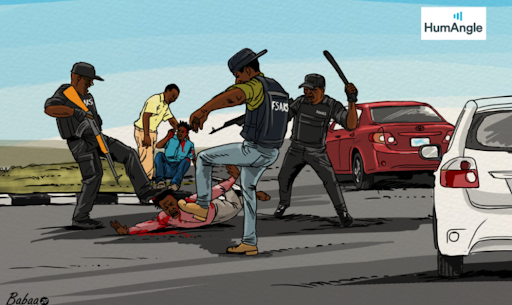Twitter Ban, Insecurity, Others Worsened Human Rights Abuses In Nigeria In 2021 – HRW
The 2022 World Report of the Human Rights Watch (HRW), an international Non-governmental Organisation, revealed that Twitter ban by the Nigerian government worsened human rights abuses in 2021.

The Nigerian government’s ban on Twitter in June, after the social media company deleted a tweet by President Muhammed Buhari for violating its rules, signaled a worsening repression of fundamental rights in the country, the Human Rights Watch (HRW), an international Non-governmental Organisation (NGo) that deals with cases of human rights violations across the world, has said.
The organisation disclosed this in its 2022 World Report (Events of 2021), which reviews human rights trends and developments in over 100 countries in the world.
The 752-page report by Human Rights Watch, published on Jan. 13, 2022, however, condemned the ban, saying it was a breach of the fundamental rights of citizens who relied on the platform for critical social and political discourse.
The report stressed that the order by the Nigeria’s National Broadcasting Commission (NBC), the regulating agency for broadcasting, that broadcasting stations in the country should stop using Twitter, was abuse of press freedom and firmed up authority’s grip on the media reportage in 2021.
The President, in his tweets vowed to deal with suspected separatists attacking government institutions and security formations in “the language they understand,” citing his role as Brigadier General in the 1967 civil war that claimed two million lives.
After public outrage, Twitter pulled down the post. In response to this, the government ordered the ban of Twitter activities in the country.
Many Nigerians switched to the use of a Virtual Private Network (VPN) to access the site, as Abubakar Malami, the Nigeria’s Attorney-General of Federation (AGF) threatened to prosecute those violating the ban.
Seven months later, the government announced the lifting of the suspension on Jan. 12, 2022, after several meetings with Twitter.
Security challenges
The report also revealed that the security challenges in the country violated human rights, citing killings and abuse of residents by terrorists in northern Nigeria and separatist activities in the south.
The report indicated that the spate of mass abductions of school children for ransom would contribute to number of out-of-school children and sexual abuse issues because it would “present an opportunity for families to force their daughters into early marriage.”
On the agitations of the Indigenous People of Biafra (IPOB) in the southeast, HRW said the demands for division in Nigeria is worsening and “the authorities sometimes responded with excessive use of force.”
Speaking on the challenges across the globe, Kenneth Roth, HRW’s Executive Director, said despite the autocratic actions of authorities, citizens have continued to protest, risking arrest and gunshots by security operatives.
“Autocratic leaders across the world faced significant backlash in 2021, but democracy will flourish in the contest with autocracy only if democratic leaders do a better job of addressing global problems.”
Support Our Journalism
There are millions of ordinary people affected by conflict in Africa whose stories are missing in the mainstream media. HumAngle is determined to tell those challenging and under-reported stories, hoping that the people impacted by these conflicts will find the safety and security they deserve.
To ensure that we continue to provide public service coverage, we have a small favour to ask you. We want you to be part of our journalistic endeavour by contributing a token to us.
Your donation will further promote a robust, free, and independent media.
Donate HereStay Closer To The Stories That Matter




